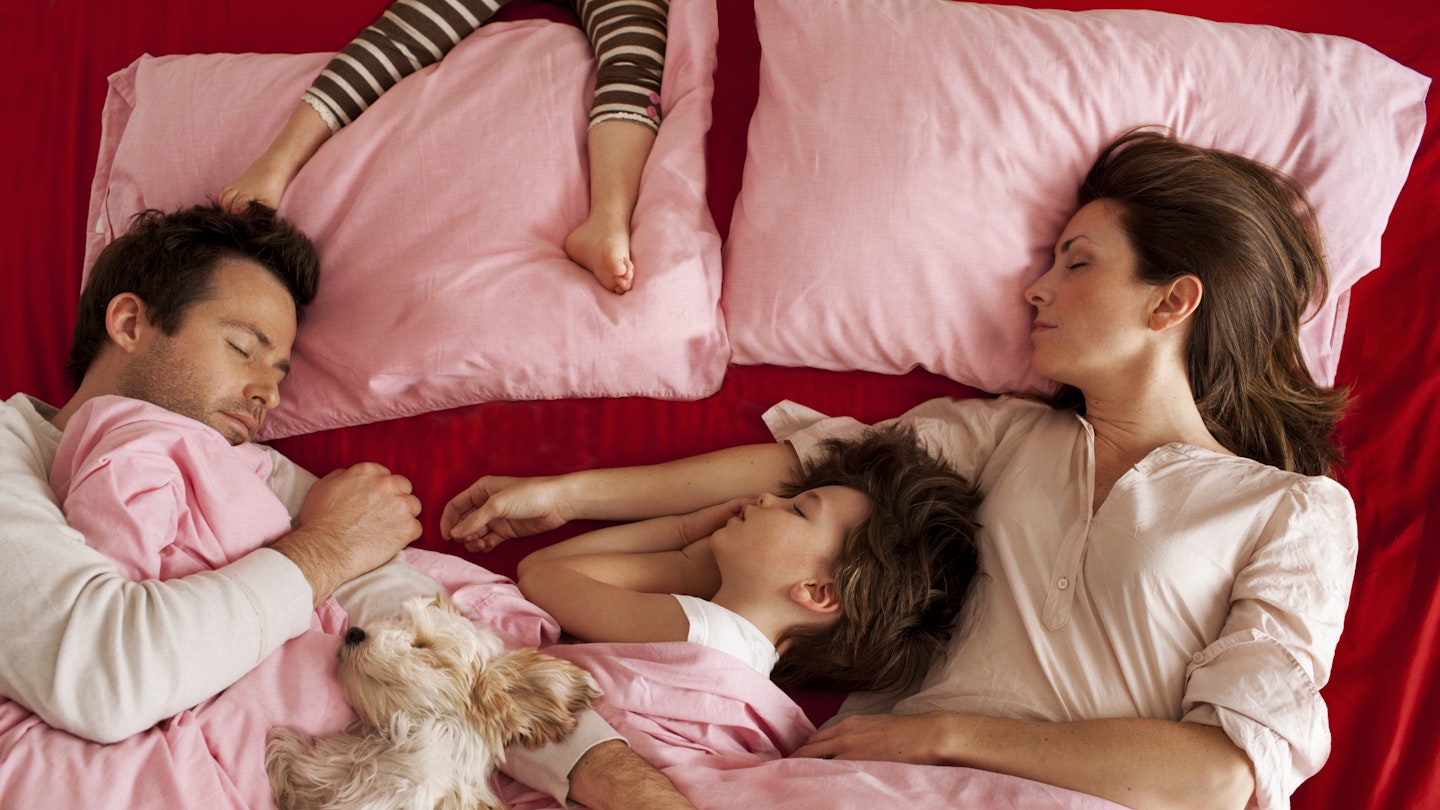Co-sleeping is one of the most hotly debated topics in parenting, but what are the pros and cons? We spoke to experts and real mums to find out...
Let’s be honest; most of us mums have co-slept with our child at some time, and if we haven’t, then we know someone who has. We’re all aware of the dangers of co-sleeping with very young babies - according to the National Institute for Health and Care Excellence, there’s an increased risk of Sudden Infant Death Syndrome when parents sleep with their baby in the first six months - but when it comes to toddlers and children, the issue is less clear cut.
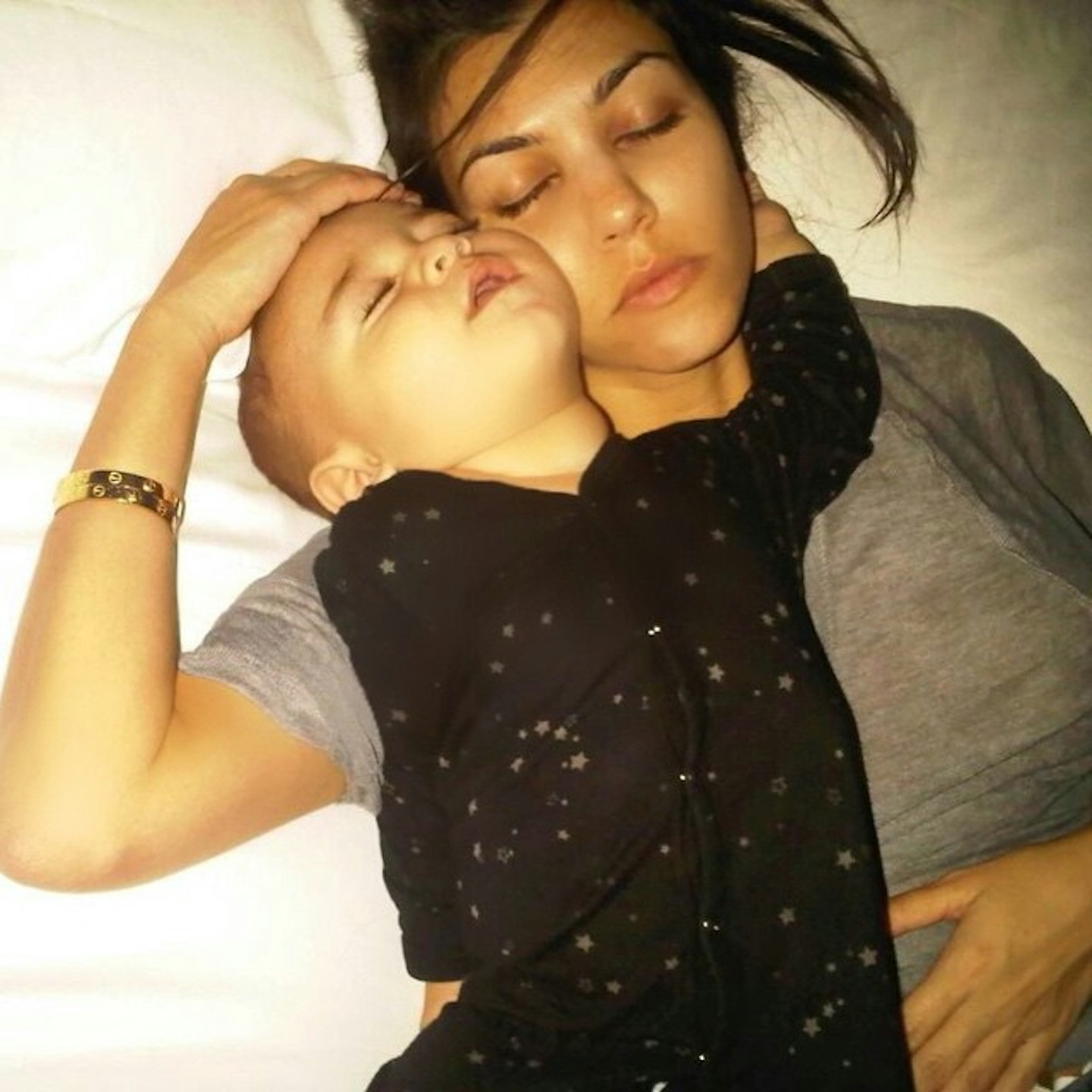
A whole host of celebrities are pro co-sleeping, from Kourtney Kardashian to Angelina Jolie. Advocates of attachment parenting argue co-sleeping is a natural bonding experience which ensures everyone gets a good night’s sleep. While those against, say it forms unhealthy sleeping habits for both parents and child.
“I think the biggest problem is that all the opinions on co-sleeping are so polarised,” says Child Sleep Consultant Annie Simpson. “There’s this idea that things are very black and white, and I don’t think they are; it’s grey most of the time. Because there is so much opinion out there, people are quite defensive of their position. We have so many clients who smuggle us in and out and don’t tell anyone we were there. They don’t want to be judged. They’re forced into this position where they have to defend what they’re doing. Everyone is the expert on where your child should be sleeping!”
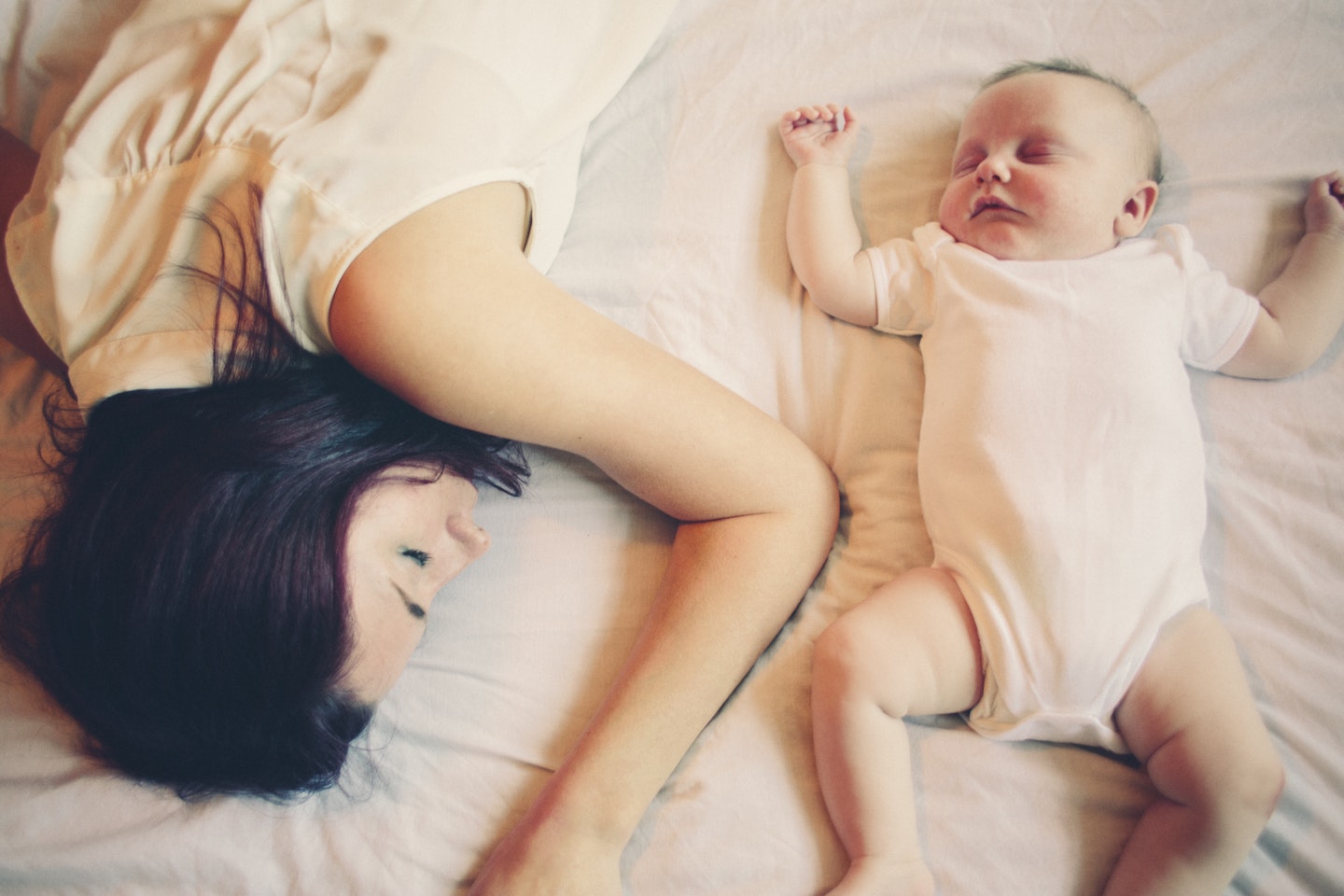
But as an expert in the field, where does Annie stand on the issue? “With young babies, SIDs guidelines say there’s always a risk with co-sleeping. I think you can co-sleep safely though, but you have to be very mindful of pillows and duvets and baby not falling off the bed." she explained.
"The problem is, the older your baby gets, the more they think, ‘oh I quite like it here,’ and it only takes three days to make a habit. Then it’s about deciding if it’s working for the family. If the family is happy, then I’d say there’s no problem. In some cases a parent - usually dad - has been booted off to the sofa or spare room and sometimes feels as little left out or resentful; not of the baby, but of the situation. Then it’s a good idea to get back on track. Sometimes the fall out can be a marriage.”
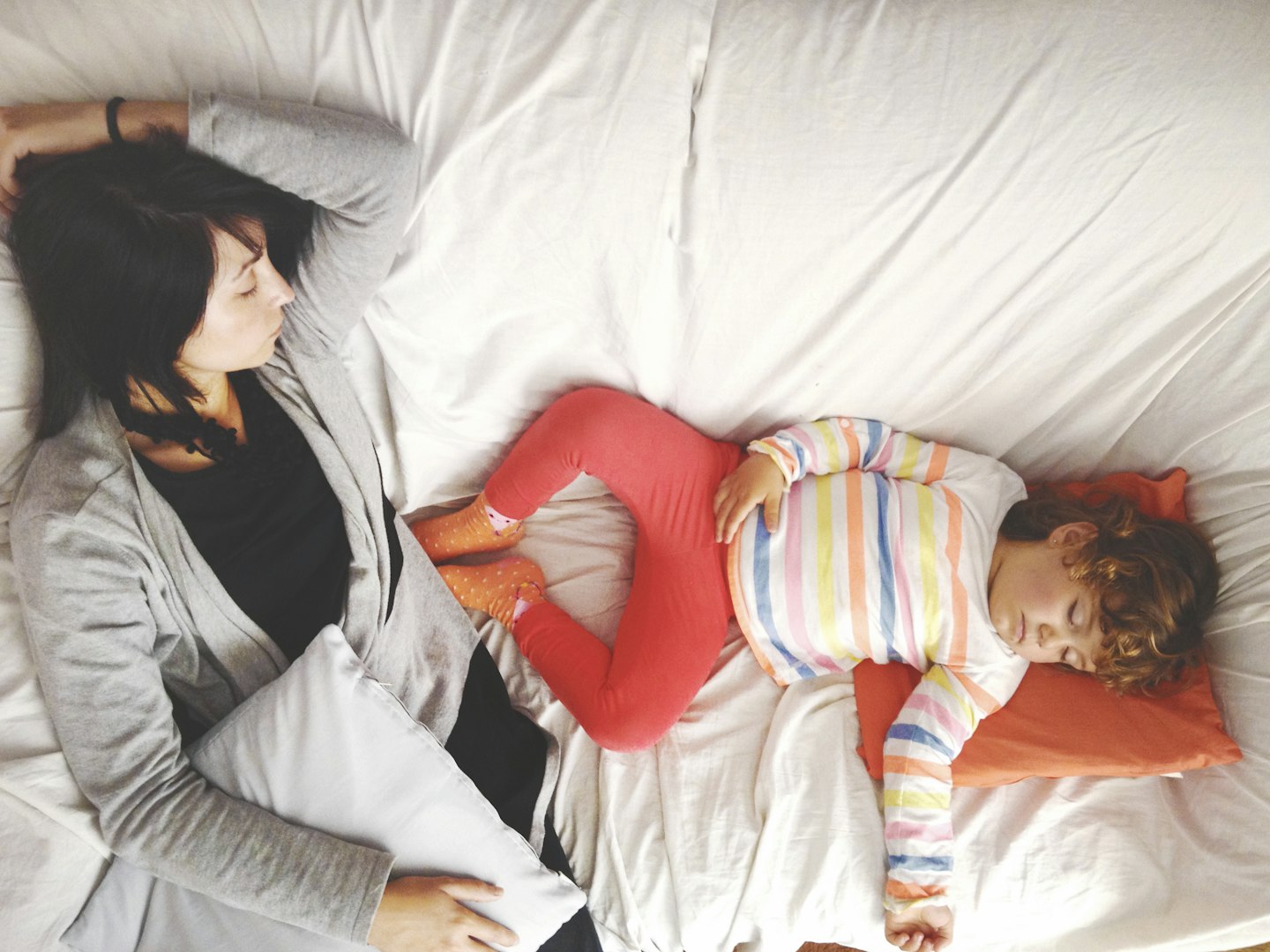
Mum-of-two Jo, 39, told Closer: “I unintentionally fell into co-sleeping with both children. My first child woke regularly, and bringing him in with us was the quickest and calmest solution. When child number two came along, we vowed to be more ‘vigilant’ with her sleep routine. Although much better at self-settling initially, she still wakes in the night and doesn't properly re-settle unless she's next to me - so all our good intentions went out the window, because we just needed sleep. I don't think there's a right or wrong answer; it's whatever works for you, as long as it means getting some sleep!”
A lot of parents co-sleep when their child is unwell, but does this set a precedent for sleeping arrangements when they feel better? Annie says: “We’ve worked with families who’ve had quite significant medical problems – this is where it doesn’t help to polarise things. As a mum, of course I’d have them in my bed. I’d want to hold them close. You have to make it as manageable for the family. The flipside to that argument is it’s important that everybody is getting good, quality sleep. The trick is to be objective and ask if it’s working for everyone.”
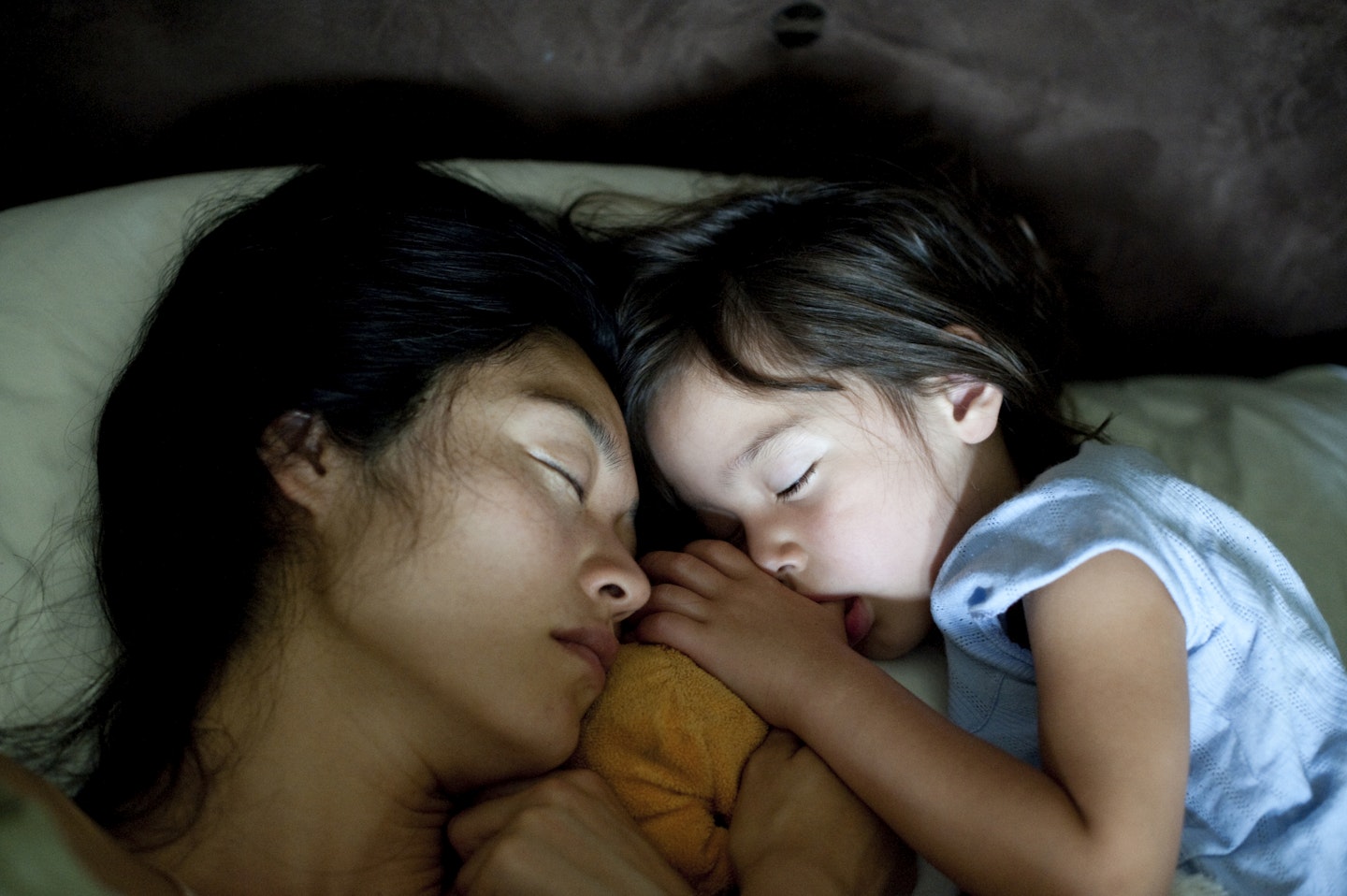
Sally, 35, told us: “I’m anti-co-sleeping for my family. I’ve only co-slept with my daughters a handful of times and only when they’re unwell. The girls don’t sleep with me comfortably unless they’re really ill, and I don’t sleep when they are in our bed. I think it’s other people’s business if they choose to co-sleep, but I hope they get enough sleep. I can see the temptation to do it but it’s not for me.”
Wriggly kids, snoring, a child’s foot in your face mid-sleep – co-sleeping doesn’t always make a good kip for parents. Annie says: “If co-sleeping is affecting peoples’ quality of sleep or having an effect on the relationship with your partner, it’s probably beneficial for everyone to sleep in their own beds. The bonding aspect is a positive, but you can bond just as much with a child who isn’t in your bed.”
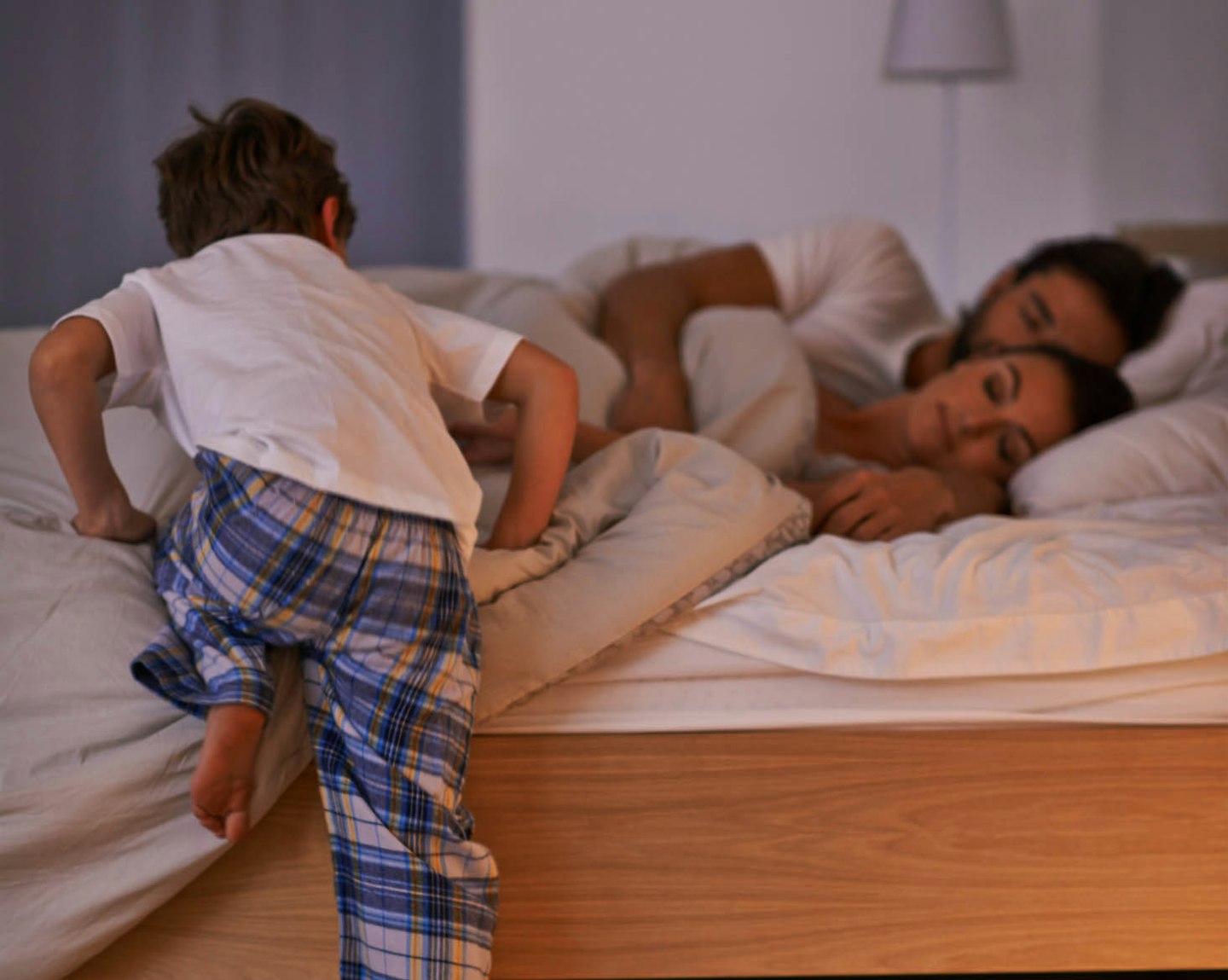
But what happens when you try to get a child who is used to co-sleeping to sleep in their own bed? Unsurprinsingly, there’s likely to be resistance. “If your child has spent weeks, months or years in your bed and then you serve an eviction notice, they’ll wonder what’s going on,” explains Annie. “It’s about acting with confidence, having a plan and sticking to it. There’s no magic to it, it’s about consistency. If your child has nightmares, reassure them and take them back to bed. If you let them in your bed, the child then associates it as a place of safety. It’s important they look to you for guidance and see everything is ok in their own bed.”
Mum-of-three Karen, 32, says that while co-sleeping is appealing, she thinks it would lead to other problems. “We’ve resisted co-sleeping, particularly with our middle child who is scared of the dark, as I know it would lead to him coming in every night," she explained. "I'm sure co-sleeping would alleviate those fears and maybe if we had a bigger bed we might have allowed it, but if one child co-slept with us, I know the others would also want to and the bed isn’t big enough for five people!”
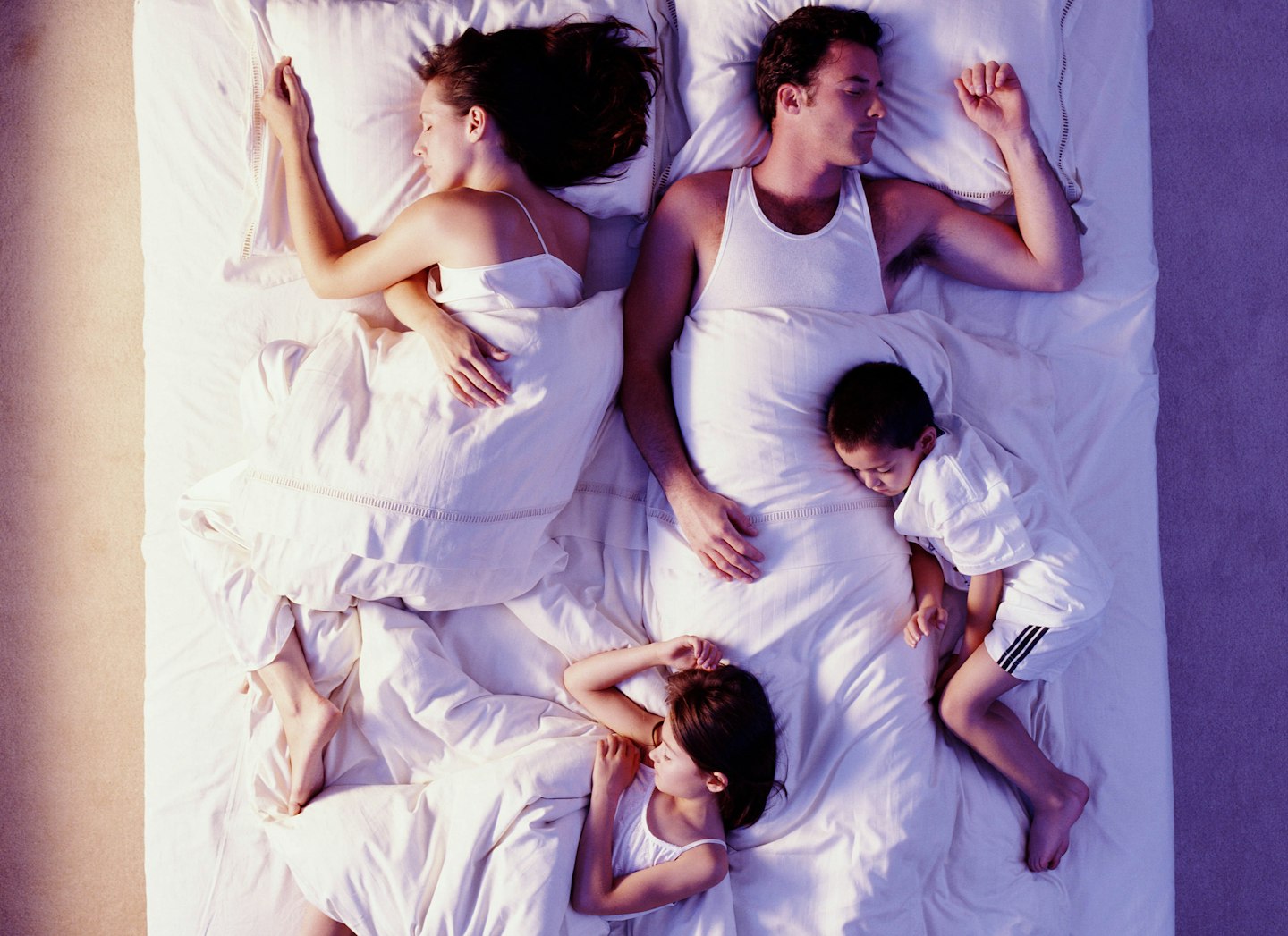
Ultimately, co-sleeping with your children is down to personal choice. As many mums know, it’s easy to have principles on perfect sleeping arrangements in the day time, but less easy to stick to your guns at 3am when you’re wandering around the landing like a zombie on your fourth wake up that night. “Peoples’ ideal sleeping scenarios do vary considerably,” says sleep expert Annie, “You just have to do what works for your family.”
Do you co-sleep with your children, or do you think it's a really bad idea? Let us know on Facebook or Twitter
READ MORE...
OPINION: Being a stay-at-home mum isn't for everyone... and that's OK
